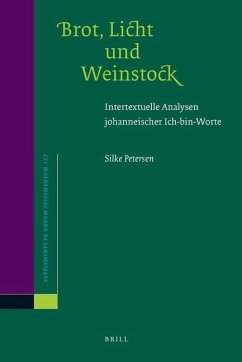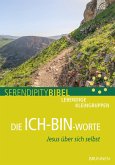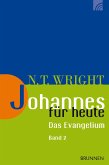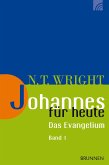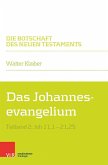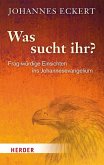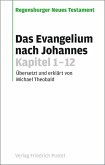This study considers the "I am" sayings in the Gospel of John, interpreted in the context of their reception in late antiquity. It takes an intertextual approach, considering both inner-biblical parallels and extra-biblical texts, which have been much neglected in recent Johannine scholarship. A comparative analysis of the "I am" formula is complemented by the consideration of the metaphors of the predicative "I am" words, focussing particularly on the use of "bread", "light" and "vine" and the context of these metaphors in the Gospel of John and elsewhere. This discussion demonstrates that Johannine Christology is profoundly incarnational.
Gegenstand der vorliegenden Untersuchung sind die Ich-bin-Worte des Johannesevangeliums. Diese werden in ihrem spätantiken Lese- und Rezeptionskontext interpretiert, wobei die Intertextualitätstheorie als methodische Basis dient und auch außerbiblische Schriften zum Vergleich herangezogen werden, die in der Forschung der vergangenen Jahrzehnte kaum berücksichtigt worden sind. Ergänzend zur vergleichenden Untersuchung der Formel "Ich bin..." werden die prädikativen Ich-bin-Worte als Metaphoren näher bestimmt und exemplarisch drei ausgewählte Prädikationen, nämlich "Brot", "Licht" und "Weinstock" in ihrem jeweiligen Kontext analysiert. Dabei wird deutlich, dass die johanneische Christologie primär als Inkarnationchristologie zu verstehen ist.
Gegenstand der vorliegenden Untersuchung sind die Ich-bin-Worte des Johannesevangeliums. Diese werden in ihrem spätantiken Lese- und Rezeptionskontext interpretiert, wobei die Intertextualitätstheorie als methodische Basis dient und auch außerbiblische Schriften zum Vergleich herangezogen werden, die in der Forschung der vergangenen Jahrzehnte kaum berücksichtigt worden sind. Ergänzend zur vergleichenden Untersuchung der Formel "Ich bin..." werden die prädikativen Ich-bin-Worte als Metaphoren näher bestimmt und exemplarisch drei ausgewählte Prädikationen, nämlich "Brot", "Licht" und "Weinstock" in ihrem jeweiligen Kontext analysiert. Dabei wird deutlich, dass die johanneische Christologie primär als Inkarnationchristologie zu verstehen ist.

